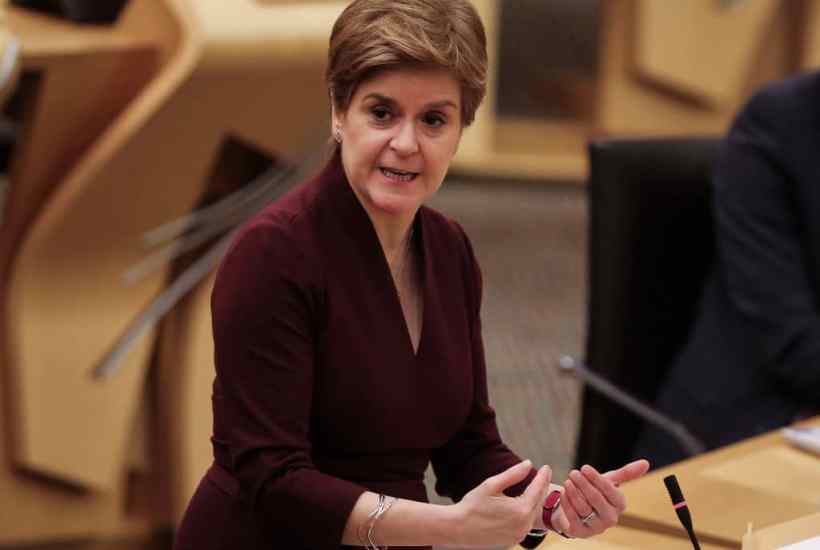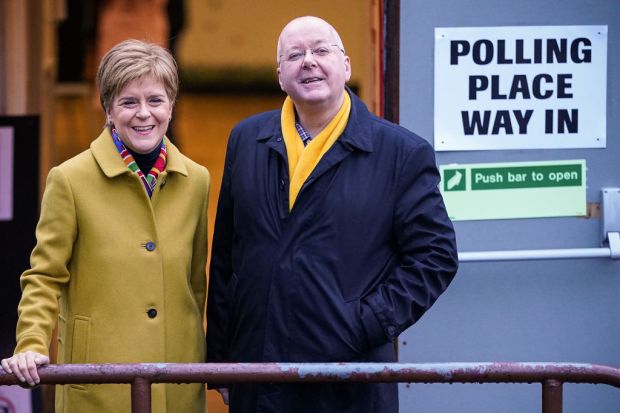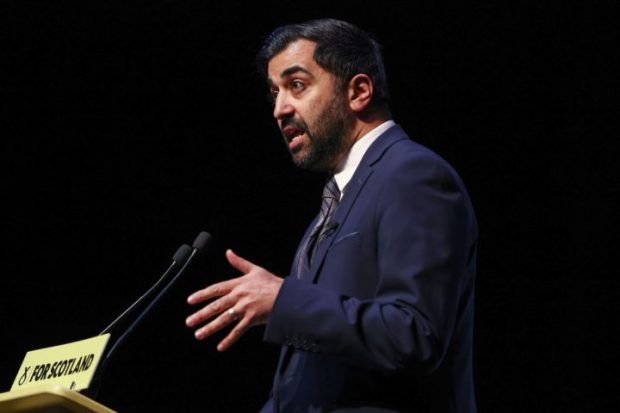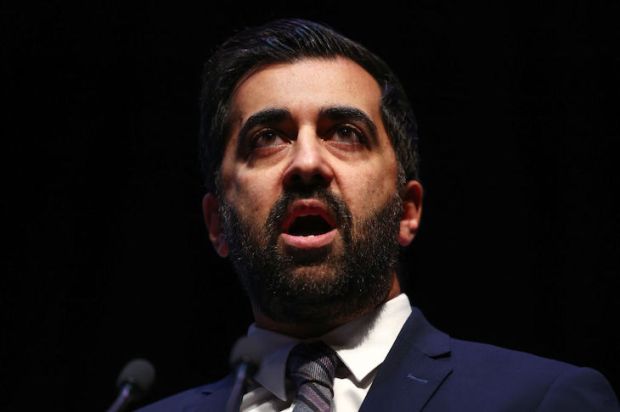Lawyers with an awkward agenda can be a thorn in the government’s side in Scotland as much as in England. Last year, for example, they persuaded the Court of Session to refuse a green light to Nicola Sturgeon’s bright idea for a unilateral Indyref2; and in a much higher profile case a couple of years earlier convinced the same court that the SNP had unlawfully and quite unfairly botched its investigation into Alex Salmond.
But the Scots legal profession is by tradition forcefully independent, if anything even more so than its English counterpart. Broadly, Scottish solicitors are regulated by the Law Society of Scotland, and advocates by the Faulty of Advocates. As well as this the Court of Session exercises an important degree of supervision acting through its Lord President (who, for the benefit of English readers, has a certain amount in common with the Lord Chief Justice). Importantly, however, Holyrood is nowhere to be seen.
This independence from governmental control makes the SNP-led government unhappy. Ten weeks ago, the administration published a consultation in which it announced its plans for a shake-up of legal regulation. Like many documents drafted by Scots civil servants, the proposals did not make for easy reading. But buried among a congeries of management clichés like ‘regulatory sandbox concept’ and ‘disadvantage the outcome for consumers with service complaints’ was one very disconcerting proposal. There should, it was said, be ‘a single regulator for all providers of legal services in Scotland… responsible for the whole system of regulation including entry, standards and monitoring, complaints and redress’. And this organisation, the document continued, had to be ‘a body accountable to the Scottish Parliament and subject to scrutiny by Audit Scotland.’
Last Monday the Scottish judiciary published its official response, which made a point that was very obvious, if embarrassing for the government: what about the separation of powers? Holyrood’s proposals, they said, essentially sought to regulate lawyers as if they were just any other profession. As a result they amounted to a ‘failure to recognise the constitutional importance of the independence of the legal profession, its importance in helping secure the independence of the judiciary and thus, the rule of law.’ A system making a profession answerable to parliament was, they added, ‘inherently against independence’, political regulation was ‘not appropriate under any circumstances.’
Wow. From a body normally discreet and reticent, which the Scottish judiciary undoubtedly is, this is strong stuff. Unfortunately, it is also correct. Treating lawyers in the same way as, say, doctors, dentists or schoolteachers amounts to dangerous governmental mission creep. Holyrood’s jejune suggestion – ironically appearing in the same paragraph as its demand that the proposed regulator should report to Holyrood – that that body would also be independent of government appeared to be a laughable instance of Caledonian doublespeak.
It is also worth noting that the Scottish government’s new legal proposals contrast starkly with the situation in England, where the regulatory body known as the Legal Services Board is independent and most certainly not directly responsible to parliament. It is also subtly different from the political approach taken by Priti Patel, who has also had her difficulties with the legal profession. Although the liberal establishment has attacked her verbal assaults on ‘lefty lawyers’ as an existential threat to the rule of law, they remain just that: verbal assaults. Substantively, her approach has actually been impeccably democratic: she is happy to leave the lawyers themselves independent, but urged parliament to change the laws they invoke, as she has every right to do. Holyrood’s threat to lawyers, by contrast, is all too genuine. Unlike Priti, the SNP government wishes to bring the Scots legal profession itself closely under political control, which is far more worrying.
You might see the judiciary’s fears as overblown. Surely, Nicola Sturgeon’s supporters can say, nominal democratic control of the legal profession by Holyrood could never in practice lead to a subservient legal culture. But that misses the point, which is that the influence on the legal profession may be subtle but still corrosive. It is perfectly possible to see an ambitious Scots politician demanding in a committee of the Scottish parliament that the regulator deal firmly with lawyers guilty of (say) extremist speech – something very much in the eye of the hearer – or speech that might be construed as an attack on equality or human rights. Just as plausible might be demands that all lawyers undergo, and not dissent from, training in anti-racism and the need to overcome systemic inequality; that diversity quotas be imposed on law firms and advocates’ chambers; or that a certain proportion of lawyers practise in specific areas such as social security law and so on.
Moreover, there is an uncanny ring of truth to the judges’ suggestion that the Scottish government is not overly concerned the constitutional independence of the legal profession. Its proposals, though published last October, were not new. They derived from the Roberton Review, a report on legal regulation set up in 2017 by Annabelle Ewing, a veteran SNP MSP from a venerable SNP clan (her mother, brother and sister-in-lawwere all SNP politicians). That review was headed, one suspects deliberately, not by a lawyer or judge but by Esther Roberton, an NHS administrator, quangocrat and archetypal member of the Scottish pro-independence great and good. It’s not surprising that in her review she saw the problem as one not of constitutional principle but essentially management technique. This, one suspects, chimed in just fine with the SNP’s instinct that the legal profession is just one further institution, like Police Scotland or the Scottish education system, to be brought as quickly as possible under the close control of its own well-lubricated political machine.
Got something to add? Join the discussion and comment below.
Get 10 issues for just $10
Subscribe to The Spectator Australia today for the next 10 magazine issues, plus full online access, for just $10.




















Comments
Don't miss out
Join the conversation with other Spectator Australia readers. Subscribe to leave a comment.
SUBSCRIBEAlready a subscriber? Log in